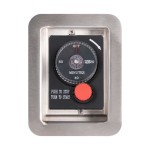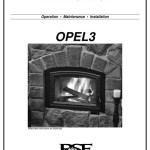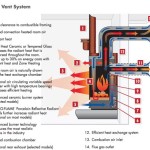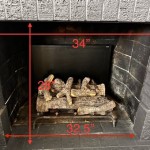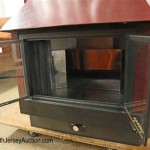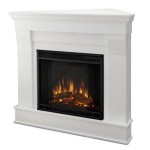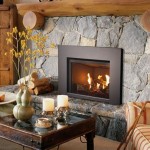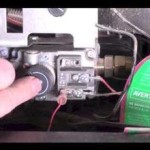How Much Is a Fireplace Worth on an Appraisal Site?
Determining the worth of a fireplace during a real estate appraisal involves a complex evaluation process considering various factors. A fireplace can significantly influence a property's market value, adding aesthetic appeal and potentially enhancing the overall comfort and ambiance of a home. However, the extent of its contribution is not a fixed number and depends on elements such as the type of fireplace, its condition, its location within the property, and the prevailing market conditions in the specific geographic area.
Appraisal sites and professional appraisers utilize established methodologies to assess the fair market value of a property, including the contribution of features like fireplaces. This process often involves comparing the subject property to similar properties (comparables) that have recently sold in the area. Identifying these comparables and making appropriate adjustments for differences such as the presence or absence of a fireplace is crucial to arriving at an accurate valuation.
The perceived value of a fireplace may also vary depending on the buyer’s preferences. While some buyers may highly value a fireplace for its aesthetic appeal and functionality, others may view it as a maintenance burden or a potential safety hazard. Understanding these variations is essential for both appraisers and homeowners when evaluating the impact of a fireplace on a property's overall worth.
Fireplace Type and Its Impact on Value
The type of fireplace significantly influences its contribution to a property's value. Traditional wood-burning fireplaces, gas fireplaces, and electric fireplaces each offer unique characteristics and associated costs. Wood-burning fireplaces, while offering a classic aesthetic and authentic experience, often require more maintenance and may be subject to local regulations regarding emissions. Gas fireplaces offer convenience and ease of use, while electric fireplaces provide a cost-effective and versatile option, often without the need for venting.
A high-end, professionally installed gas fireplace with remote control and advanced features will generally add more value than a basic, builder-grade wood-burning fireplace. Similarly, the material used for the fireplace surround and mantel can significantly impact its perceived value. A fireplace constructed with high-quality materials like natural stone or custom woodwork will generally contribute more to the property's overall aesthetic and, consequently, its value.
Furthermore, the efficiency of the fireplace plays a crucial role. Modern fireplaces, particularly gas and electric models, often come with energy-efficient features such as zone heating capabilities and programmable thermostats. These features can appeal to buyers who are conscious of energy costs and environmental impact, potentially increasing the fireplace's contribution to the overall property value.
In areas where wood-burning fireplaces are restricted due to air quality concerns, a gas or electric fireplace may be the only acceptable option, substantially increasing its value relative to a property without any fireplace. It's also important to consider the cost of installation and maintenance associated with each type of fireplace when evaluating its long-term impact on property value.
Condition and Maintenance Considerations
The condition of the fireplace is paramount when determining its value. A well-maintained fireplace in excellent working order will contribute significantly more to a property's value than a damaged or neglected fireplace. Appraisers will carefully inspect the fireplace for any signs of damage, such as cracks in the firebox, damaged flues, or malfunctioning components. They will also assess the overall cleanliness and appearance of the fireplace, taking note of any signs of soot buildup or other forms of neglect.
Regular maintenance, including chimney cleaning and inspections, is essential to ensure the safe and efficient operation of a fireplace. A documented history of professional maintenance can add considerable value to a fireplace, as it demonstrates that the homeowner has taken proactive steps to maintain its condition and prevent potential problems. Conversely, a lack of maintenance can raise concerns among potential buyers and negatively impact their perception of the property's value.
Any visible damage or safety hazards associated with the fireplace will typically result in a reduction in its appraised value. Significant repairs may be required to bring the fireplace up to code, potentially incurring substantial costs for the homeowner. In some cases, an appraiser may recommend that a qualified professional inspect the fireplace before a final valuation can be determined.
Moreover, the age of the fireplace can also influence its value. Older fireplaces may be less efficient and may not meet current safety standards. Upgrading to a newer, more efficient model can significantly enhance the fireplace's contribution to the property's overall value.
Location and Market Influences
The location of the fireplace within the property plays a significant role in determining its value. A fireplace located in a central living area, such as the living room or family room, will generally have a greater impact on property value than a fireplace located in a less frequently used space, such as a basement or bedroom. The perceived value of the fireplace is directly correlated with its visibility and accessibility.
Furthermore, the geographical location of the property can influence the demand for fireplaces. In colder climates, where fireplaces are commonly used for supplemental heating, they tend to add more value to a property. In warmer climates, where fireplaces are primarily used for aesthetic purposes, their impact on property value may be less significant.
Real estate market trends and local market conditions also affect the perceived value of a fireplace. In a seller's market, where demand for properties is high, buyers may be more willing to pay a premium for features such as a fireplace. In a buyer's market, where there is more competition among sellers, the presence of a fireplace may be less of a differentiating factor.
Appraisers must carefully consider these market influences when evaluating the contribution of a fireplace to a property's overall value. They will analyze recent sales data for comparable properties in the area, taking into account the presence or absence of fireplaces and any associated premiums or discounts. This comparative analysis helps to ensure that the appraisal accurately reflects the prevailing market sentiment and the true value of the fireplace.
Additionally, cultural and regional preferences can play a role. For example, in certain regions, a traditional wood-burning fireplace may be highly valued for its historical significance and rustic charm. In other regions, a modern gas fireplace with sleek design and advanced features may be more desirable. These preferences can influence the perceived value of the fireplace and its impact on the overall property appraisal.
In conclusion, assessing the worth of a fireplace on an appraisal site requires a comprehensive evaluation of several factors. The type, condition, location, and market influences each significantly influence the fireplace's contribution to the overall property value. A qualified appraiser will carefully consider these factors and utilize established methodologies to arrive at an accurate and impartial valuation.

Does A Fireplace Add Re Value To Your Home Experts

How Fireplaces Can Increase Your Al Property S Value Redi

How Much Does A Fireplace Add To Home Value Countyoffice Org

Obsolete But Cozy Does Adding A Fireplace Increase Home Value

Impact Of Electric Fireplaces On Real Estate Value

Does An Electric Fireplace Add Value To A Home Fireplaces Direct Learning Center

Obsolete But Cozy Does Adding A Fireplace Increase Home Value

Can A Fireplace Add Value To Your Home Quality Overhead Door

Is A Gas Or Wood Fireplace Better For Home Re Value

How Much Value Does A Fireplace Add To Home Countyoffice Org
Related Posts

